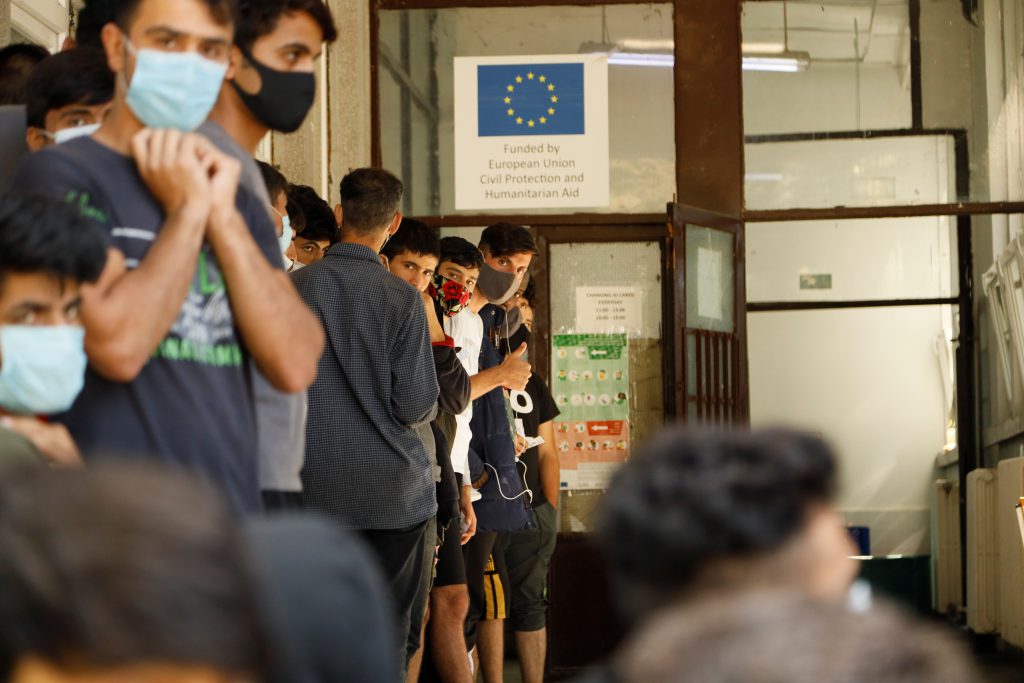The EU’s activation of the Temporary Protection Directive for refugees fleeing the conflict in Ukraine can be commended. But what about refugees from other borders? Many who face conflict are pushed back and prevented access to the European Union, including by the European Border Agency Frontex.
On this World Refugee Day, EuroMed Rights denounces this double standard from the European Union and its Member States and calls for serious reforms in the internal management of Frontex.
A dramatic situation across the Mediterranean
In 2022 alone, in the Central Mediterranean, 8,270 people were intercepted and returned to detention centers in Libya. Pushbacks often take place from the Maltese Search and Rescue (SAR) zone, against the principle of non-refoulement. The so-called Libyan Coast Guards intercept migrants’ boats after they have been adrift for days without any assistance from European authorities. Evidence shows that Frontex is complicit in these pushback operations, as it communicates with Libyan authorities – sometimes sending them the boats’ location – to facilitate interceptions.
The situation is equally dramatic at the Greek-Turkish border. In the first few months of 2022, 40,000 people have been pushed back by the Greek authorities in the Evros region. Systematic and violent pushback operations regularly take place at sea as well. A recent investigation by Lighthouse Reports showed how Frontex is involved – “on a massive scale” – in pushback operations in this border region. The report provides clear evidence that the EU agency was involved in 22 cases of illegal expulsions in the Aegean, representing a total of 957 people.
Frontex complicity in pushbacks calls for serious reform and budget reorientation
With the evidence of Frontex’s complicity in human rights violations at the EU external borders increasing, there have been some positive developments to demand more transparency and accountability from the EU agency.
On 4 May 2022, the European Parliament voted against Frontex’s budget discharge due to the lack of investigations the agency conducted on pushbacks and human rights violations against asylum-seekers in Greece. The Parliament’s decision came after Fabrice Leggeri’s resignation from his position as Frontex CEO and the refusal of Frontex’ staff to go to work. It also followed the disclosure of new findings on the agency’s complicity in human rights violations.
European Commissioner Ylva Johansson visited Frontex headquarters after these internal developments to reiterate the message that the agency must operate in full compliance with the law. However, despite the pressure faced by the agency, it will still be provided with an unprecedented funding of €5.6 billion under the new 2021–27 Multi-Annual Financial Framework. This constitutes a 194% budget increase compared to the previous cycle. The agency’s spiralling budget, and its 2,000 agents, 13 vessels and over 200 patrol cars deployed at the EU external borders clearly show the EU is more interested to put border militarisation before the respect of fundamental rights.
Human rights must be at the heart of Frontex’s operations and migration policies
As EuroMed Rights, we call for the new leadership in Frontex to put human rights and accountability at the centre of its operations. Frontex Fundamental Rights Officers should have adequate resources to carry our independent investigations into human rights abuses, and the agency should act according to their findings and recommendations.
An independent, effective, permanent and transparent monitoring mechanisms to detect human rights violations at borders must also be put in place. We call for these structural reforms in the agency so that the human rights of people on the move are put before the EU’s obsession with border security and returns.

